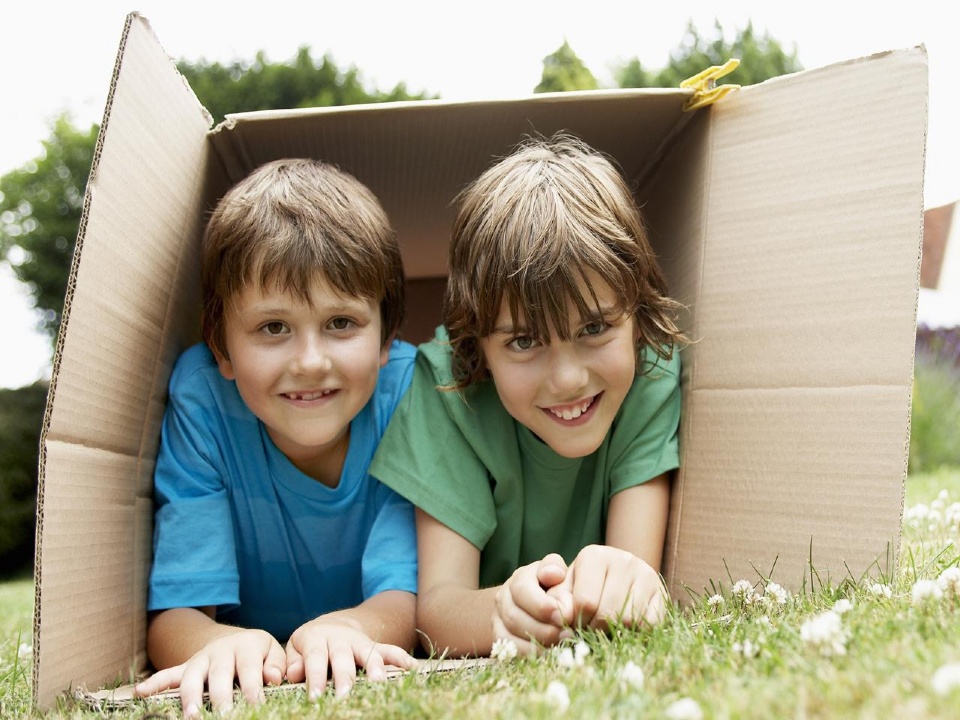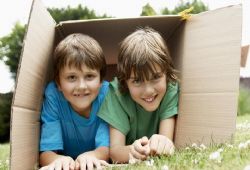It was a warm sunny Saturday afternoon when I first met Sandra (not her real name). She entered DM’s clinic with a serious face and a burdened heart. It took but a few minutes for her eyes to water as she shared her worries about her son Tyler. Unlike her own sunny childhood filled with memories of school and neighbourhood friends, her son Tyler’s best and only friend is his iPad he named “Charlie”.
Like other parents, Sandra wanted her son to be happy, and to have a “friend”. She spoke about the party invitations that did not come, the playdates that never worked out… and of her sweet loving son sitting at home alone. At school, everyone has good things to say; “Tyler’s a great kid, the first to jump up and help others”. He does well academically, yet, day after day, he fails recess and lunchtime. He spends his free time walking around alone, watching other children laughing and having fun, like an outsider. Sometimes he even stands close by to a group so it seems he’s included. One night, as she tucked him into bed, Tyler asked his Mom if he would ever have a friend. Sandra could not bear to see her son’s loneliness.
In contrast, “Marc”, in Tyler’s class, would probably say recess and lunchtime are his favourite times of the day. Marc is easygoing, likes to try new games, and when the inevitable conflicts emerges, is able to resolve the disagreement without hurting the friendship. It’s no wonder that when there’s a game to be played, a team member to be chosen, a party or playdate on the horizon, Marc’s name is one of the first to be called. Marc is one of those lucky children whose brains seem to download social skills from his environment without conscious thought or effort. He doesn’t even know it, but his social skills are a protective factor against social isolation.
Whether young or old, our friends provide us with support; their presence in our lives improves our well-being and mental health. It’s within friendships that we hone our social skills – we learn how to relate to other human beings, how easily feelings get hurt, and about resilience. Research shows up to 50<>percentage<> of youth having difficulty managing relationships in childhood will continue to have difficulties in future relationships.
“With practice and direct teaching, children can improve their friendship skills.DM’s social skills groups can help”
The good news for all the parents of Tylers out there is that with practice and direct teaching, children can improve their friendship skills. Tyler joined DM’s social skills group based on solid research, and practiced skills he needed every week with same aged peers within the group setting. Children who are more socially competent are more likely to take risks, solve problem, work together in a team, and manage their emotions whenthings don’t go their way. DM offers groups to help young people learn the skills they need for success. Tyler may never be the centre of the group, but he never wanted that anyway; He just wanted a friend.
Contact DM for more information at www.dmfamilyschool.com
Together we can make a difference ! Sincerely, DM FAMILY SERVICES

 In The Latest Issue:Latest Issue:
In The Latest Issue:Latest Issue:
- A Bittersweet Farewell
- The new Laval Aquatic Co...
- The End of an Era:
Articles
Calendar
Virtual- ANNUAL TEACHER APPRECIATION CONTEST
- APPUI LAVAL
- ARTS & CULTURE
- CAMPS
- CAR GUIDE
- CCIL
- CENTENNIAL ACADEMY
- CHARITY FUNDRAISING
- CITYTV
- COSMODÔME
- COMMUNITY CONNECTIONS
- COVER STORY
- DINA DIMITRATOS
- ÉCOLE SUPÉRIEURE DE BALLET DU QUÉBEC
- EDITORIALS
- ÉDUCALOI
- EDUCATION
- EMPLOYMENT & ENTREPRENEURSHIP
- FÊTE DE LA FAMILLE
- FÊTE DU QUARTIER SAINT-BRUNO
- FAMILIES
- FESTIVAL LAVAL LAUGHS
- FÊTE DE QUARTIER VAL-DES-BRISES
- FINANCES
- GLI CUMBARE
- GROUPE RENO-EXPERT
- HEALTH & WELL-BEING
- 30 MINUTE HIT
- ANXIETY
- CHILDREN`S HEALTH & WELLNESS
- CLOSE AID
- DENTAL WELLNESS
- EXTREME EVOLUTION SPORTS CENTRE
- FONDATION CITÉ DE LA SANTÉ
- GENERAL
- HEARING HEALTH
- MESSAGES FROM THE HEALTH AGENCY OF CANADA
- MENTAL HEALTH
- SEXUALITY
- SOCIAL INTEGRATION
- SPECIAL NEEDS
- TEENS
- THE NUTRITION CORNER
- THE NUTRITION CORNER - RECIPES
- VACATION DESTINATION
- WOMEN'S FITNESS
- WOMEN'S HEALTH
- HILTON MONTREAL/LAVAL
- HOME & GARDEN
- INTERNATIONAL WOMEN'S DAY
- JAGUAR LAVAL
- LAVAL À VÉLO
- LAVAL FAMILIES TV SHOW
- LAVAL FAMILIES MAGAZINE CARES
- LAVAL URBAN IN NATURE
- LE PARCOURS DES HÉROS
- LES PETITS GOURMETS DANS MA COUR
- LEON'S FURNITURE
- LEONARDO DA VINCI CENTRE
- LFM PREMIERES
- LIFE BALANCE
- M.P. PROFILE
- MISS EDGAR'S AND MISS CRAMP'S SCHOOL
- MISSING CHILDREN'S NETWORK
- NETFOLIE
- NORTH STAR ACADEMY LAVAL
- OUTFRONT MEDIA
- PASSION SOCCER
- PARC DE LA RIVIÈRE-DES-MILLE-ÎLES
- PÂTISSERIE ST-MARTIN
- PIZZERIA LÌOLÀ
- PLACE BELL
- PORTRAITS OF YOUR MNA'S
- ROCKET DE LAVAL
- SACRED HEART SCHOOL
- SCOTIA BANK
- SHERATON LAVAL HOTEL
- SOCIÉTÉ ALZHEIMER LAVAL
- STATION 55
- STL
- SUBARU DE LAVAL
- TECHNOLOGY
- TEDXLAVAL
- TODAY`S LAURENTIANS AND LANAUDIÈRE
- TODAY`S LAVAL
- WARNER MUSIC
- THIS ISSUE
- MOST RECENT
Magazine
You gotta have Friends!
Articles ~e 105,7 Rythme FM 4 chemins Annual Teacher Appreciation Contest Appui Laval Arts & Culture Ballet Eddy Toussaint Camps THIS ISSUE MORE...
CONTESTS Enter our contests
CONTESTS Enter our contests
CALENDAR
Events & Activities
COMMUNITY Posts Events
PUBLICATIONS Our Magazine Family Resource Directory
LFM BUSINESS NETWORK Learn more
COUPONS Click to save!
COMMUNITY Posts Events
PUBLICATIONS Our Magazine Family Resource Directory
LFM BUSINESS NETWORK Learn more
COUPONS Click to save!
SUBSCRIPTIONS
Subscribe to the magazine
Un-Subscribe
E-NEWSLETTER Subscribe to our E-newsletter Un-Subscribe
WRITE FOR US Guidelines & Submissions
POLLS Vote today!
E-NEWSLETTER Subscribe to our E-newsletter Un-Subscribe
WRITE FOR US Guidelines & Submissions
POLLS Vote today!
ADVERTISERS
How to & Media guide
Pay your LFM invoice
SUGGESTIONS Reader's Survey Suggest a Listing
LFM About Us Our Mission Giving Back Contact Us
SUGGESTIONS Reader's Survey Suggest a Listing
LFM About Us Our Mission Giving Back Contact Us
 PICK-UP LOCATIONS
Get a copy of LFM!
PICK-UP LOCATIONS
Get a copy of LFM!
TERMS & CONDITIONS Privacy | Terms
ISSN (ONLINE) 2291-1677
ISSN (PRINT) 2291-1677
Website by ZENxDESIGN



 BY:
BY: 
Tweet
Share